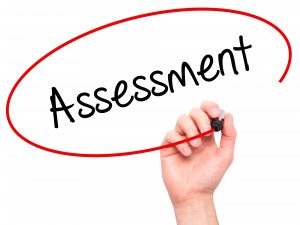 The usual symptoms of anxiety include feelings of tension/stress, breathlessness, sweating, shaking, palpitations, restlessness and, at times, panic attacks. These symptoms are triggered by the ‘fight or flight’ response (i.e. the body’s normal physiological response to stress, fear or perceived threat resulting in a state of hyperarousal).
The usual symptoms of anxiety include feelings of tension/stress, breathlessness, sweating, shaking, palpitations, restlessness and, at times, panic attacks. These symptoms are triggered by the ‘fight or flight’ response (i.e. the body’s normal physiological response to stress, fear or perceived threat resulting in a state of hyperarousal).
Following brain injury, the person may experience great difficulty coping with stress. Even minor stresses in life can at times lead  to them experiencing high levels of anxiety. High levels of anxiety can in turn result in high levels of agitation and, at times, aggression. Anxiety may also have a negative impact on the brain injured person’s ability to cooperate with care, medical support and rehabilitation.
to them experiencing high levels of anxiety. High levels of anxiety can in turn result in high levels of agitation and, at times, aggression. Anxiety may also have a negative impact on the brain injured person’s ability to cooperate with care, medical support and rehabilitation.
During the period of post traumatic amnesia (PTA) high levels of anxiety are frequently prominent and can contribute to reduced cooperation, agitation and aggression. When the person emerges from the period of PTA they may experience increased anxiety as a normal adjustment reaction. The person may experience difficulty coping with their changed life circumstances and the neurological sequelae of ABI.
Factors which contribute to increased levels of anxiety following brain injury include:
- Impairments of cognition and communication.
- Reduced tolerance for frustration and boredom.
- Sensitivity to noise and high levels of stimulation.
- Confusion and disorientation to their environment (the person not knowing where they are or why) and the role of carer
 s.
s. - Fatigue and sleep disturbance.
- Medical issues (e.g. bladder and bowel dysfunction, pain, infection, seizures).
- Living with other brain injured people whose behaviour may be unpredictable.
- Social isolation and reduced opportunities for communication.
- Mood disorder i.e. irritability and anxiety are symptoms of depression.
- Psychotic symptoms e.g. feelings of paranoia (particularly common during PTA but may remain a prominent feature in some people with significant cognitive impairment after brain injury.
It is important to be aware that elevated levels of anxiety may exacerbate impairments of cognition and communication. Anxiety may also adversely impact upon the interpersonal, social and vocational/educational aspects of the person’s life. High levels of anxiety may have a significant detrimental impact upon the person’s quality of life.
Impact of Cognitive and Communication Difficulties on Anxiety
 There are several screening tools for the diagnosis of an anxiety disorder, one of which is the Hospital Anxiety and Depression Questionnaire (HADS). However, it is important to be aware that the use of these questionnaires may not always be helpful in diagnosing an anxiety disorder following brain injury. This is because:
There are several screening tools for the diagnosis of an anxiety disorder, one of which is the Hospital Anxiety and Depression Questionnaire (HADS). However, it is important to be aware that the use of these questionnaires may not always be helpful in diagnosing an anxiety disorder following brain injury. This is because:
- The diagnostic criteria outlined may not actually be due to an anxiety disorder, but rather may be indicative of the neurological sequelae of brain injury (e.g. pain, restlessness, irritability, agitation).
- Problems with communication, cognition and insight may adversely impact upon the person’s ability to accurately complete a questionnaire.
Therefore screening questionnaires need to be interpreted in the light of a full clinical assessment.
Please refer to the follow links for further information on varying types of anxiety disorders which may occur following Acquired Brain Injury:
Generalised Anxiety Disorder
Phobic Anxiety Disorder
Obsessive Compulsive Behaviour
Post Trauma Symptoms and Post Traumatic Stress Disorder (PTSD)
For advice regarding treatment which may be helpful in the management of anxiety, please click here.